 020 3404 5177
020 3404 5177
15 Most Common Places Where You Will Find Spiders In Your Home
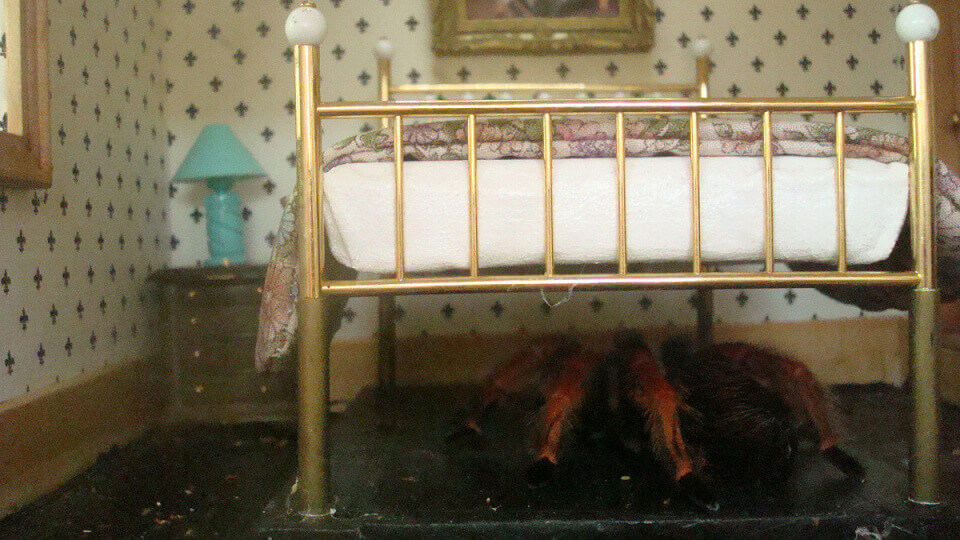
There are about 650 species of spiders found in the UK. Most of them are common in houses and other man-made constructions. When it comes to their hiding spots, the eight-legged creatures can practically hide almost anywhere.
The only purpose a spider will invade your home is in search for shelter and prey. Here are the 10 most common spiders found in and around Britain’s homes:
- Missing sector orb web spider
- Giant house spider
- Daddy long legs spider
- Lace web spider
- Zebra jumping spider
- False widow spider
- Cardinal spider
- Money spider
- Tube web spider
- Cupboard spiders
Where to Look For Spiders in Your Home
Most people are afraid of spiders, not to mention these suffering from arachnophobia. Although spiders don’t really like to announce themselves (they’re pretty good at hiding) it would be extremely difficult to avoid noticing them at least once in a lifetime.
Well don’t worry about it, there are several spots that seem to be very popular spider hangouts and below we’ll reveal to you the most common locations in and around your premises where spiders would love to hide and how to turn them into anti-spider spots.
Take advantage of the the prevention tips as well!
1. Under Furniture – A Good Hiding Spot
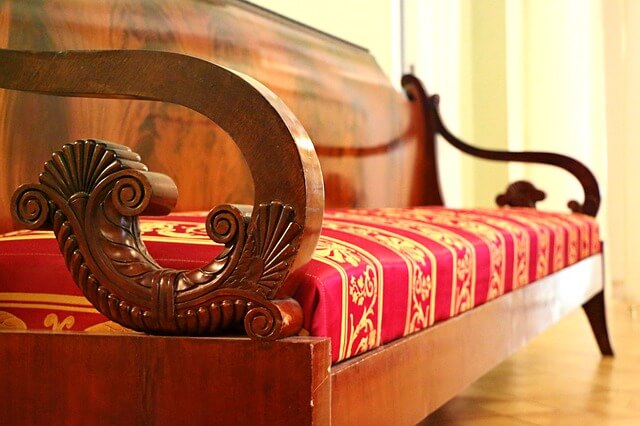
Some spiders have day and night-time hiding spots. They love privacy and the darkness under your table or sofa completely satisfies them.
Give them a nice vacuum treatment and there will be no signs of them anymore.
2. Under the Sink – Water is Vital for Spiders
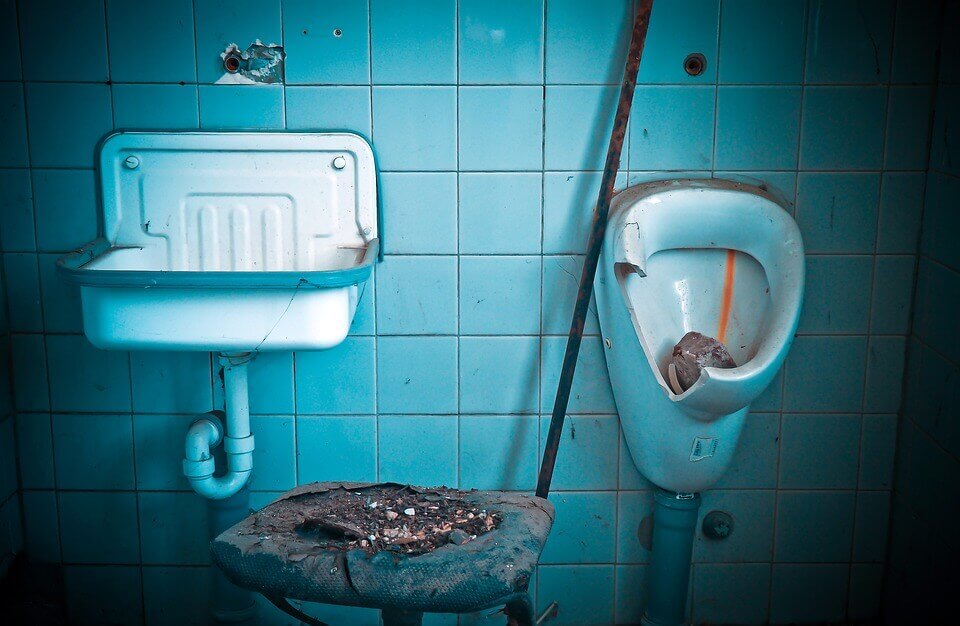
This is a preferred destination for spiders because one of the things they need to survive is water. Some of them need more water than others, but they still need some, which automatically turns out the spot under the sink to a perfect match.
Luckily for all of us, in the UK there aren’t representatives of the biggest spiders in the world.
Fixing any leaks as soon as possible and occasionally cleaning under the sink may refuse spiders to choose this place.
3. In the Clutter – Spiders Adore Hoarders
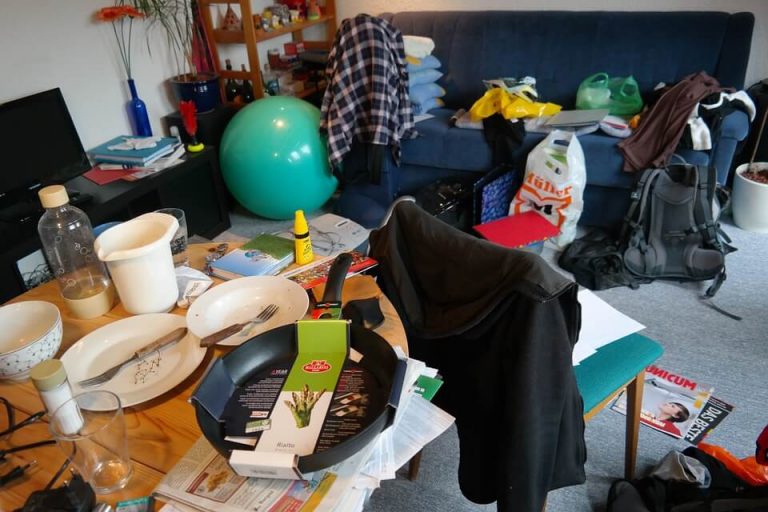
Quiet, undisturbed area with a possibility to haunt mosquitoes, flies, cockroaches etc. This is the description spiders would use about a cluttered area in your house.Hoarders typically store tons of old and unuseful stuff in their basement, attic or garage. Those kinds of places accumulate more and more rubbish over time and the chances to have spiders hiding out there are extremely close to 100%.There is only one way to deal with this – Clear the clutter and get rid of the junk on time!
4. Cardboard Boxes – You Never Know What You’ll Find Inside
Have you ever left any stuff boxed up in the basement for unknown period of time. Sure, you did. Well, have you find “cute creatures” such as spiders living inside these boxes when you were in need to move them away. Sure, you did!To avoid an encounter with a silk-producing arachnid just don’t leave boxes full with old or useless stuff alone for too long.
5. Woodpiles and Rocks – Always Check Before Lifting

The most dangerous spiders tend to hide under rocks and piles of wood. If you store woodpiles somewhere indoors there is a huge possibility to help scary spiders to make their way into your rooms. Any unnecessary piles of debris from your backyard may need to be checked as well! Be careful when you moving rocks and loading the fireplace!
To prevent that, clean up any unnecessary piles of debris from your yard. It doesn’t really matter if you store woodpiles indoors or outdoors, covering them firmly with plastic material will help in both situations.
6. Doors – Usually Spiders Hang Under the Frame

Door frames are another place where you can spot a spider in your home.
Did you know that spiders hate the smell of citrus fruits such as lemons, limes and oranges. Rubbing some lemon peels along the window sills and door frames will put spiders off entering your room. They really don’t like the smell of citrus, because even using lemon-scented furniture polish can drive spiders crazy and they will run away from your home!
7. Sheds – Nice and Cosy for Spiders

Do you clean your shed at the end of every summer? And right after a few weeks, it is back to its cobweb infested state.
Sheds are a great addition to many gardens throughout the UK. Most people use them to store stuff very suitable for insects like gardening tools and furniture, children’s outdoor toys, plant pots and tubs, paints and treatments. Well, unfortunately, your shed looks like another place where a spider can catch his pray.
Getting stuff in or out of the shed turns into a quite uncomfortable challenge? It’s time to deal with those critters with a Spider-Proof Shed.
8. Garages

Garages are not only a walled, roofed structure from your property for storing your vehicle, this is also a likely area for the spider to settle down. Make sure all entry points are sealed to deny access.
During the hot summer days the dark corners of your garage provide the perfect protection for the arachnids. There they are setting up a camp (waiting to grow in size) before heading into your home when the cold weather hits.
If you notice an infestation and you are afraid to handle it on your own, contact a professional pest control exterminators to inspect and treat the area.
9. Barns – They Can Be Easily Infested
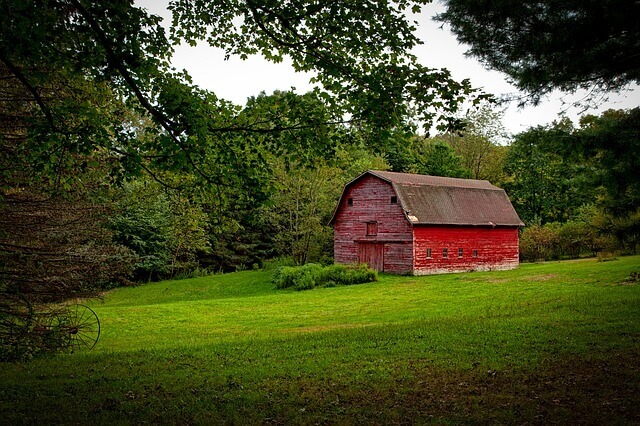
Outdoor spiders tend to peak in population around the beginning of the fall. However, spiders that live in barns maintain numbers all year round, because usually this place is less used and it’s warm. Even if they are harmless, spiders can be a nuisance.
Regularly clean and sanitise the barn, remove webs with a vacuum otherwise you’ll have to deal with disgustingly huge blobs of spiders.
10. Ceiling Corners – The Most Common Hiding Spots Spiders Would Choose
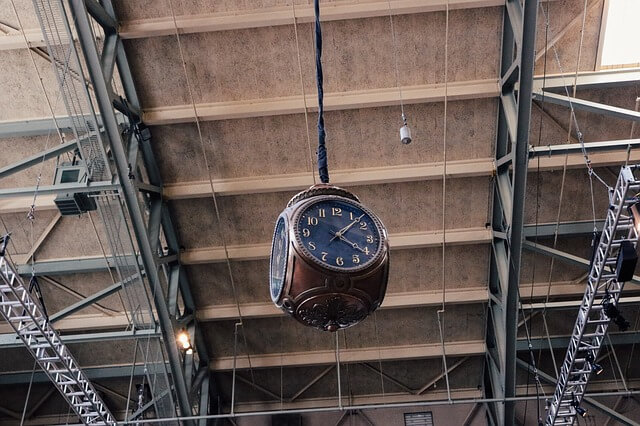
Are you wondering why spiders are always found in corners of ceilings? West African Folk-Tales by William H. Barker and Cecilia Sinclair (Part of The SurLaLune Fairy Tale Pages by Heidi Anne Heiner) have got the answer for you here.
Оutside the fairy tale the ceiling corners are the most common place to spot a spider in your home. They prefer to spend much of their time there to find prey easier. Spotting them and doing nothing about it may cause bigger infestation problems in the future. If you don’t take an action and remove spider webs from the ceiling corners, spiders can lay eggs and spread their reign.
Vacuum the edged areas regularly to get rid of the webs.
11. Window Sills – Check Both Inside and Outside

One of the most common areas that accumulate spider webs and cobwebs in your home are the window sills or the spots between the screen and the window. This irritation is particularly troublesome during the summer months when you want to open up those windows to get some fresh air, but a spider stares at you from the outside window sill.
Some spider killers from your local department store will help you deal with the infestation. Spray this around the entire perimeter of the window outside and the do the same for the inside of the window sills, paying particular attention to any crevices.
Clean the window sills from top to bottom with a strongly scented pine cleaner. Spiders do not like the smell, and it is a natural deterrent for future spider webs.
If you have doubts how to get rid of the spiders that have spread among the window sills, check our post on pest control methods.
12. Well-Lit Spaces – Lamp Lights Attract Insects
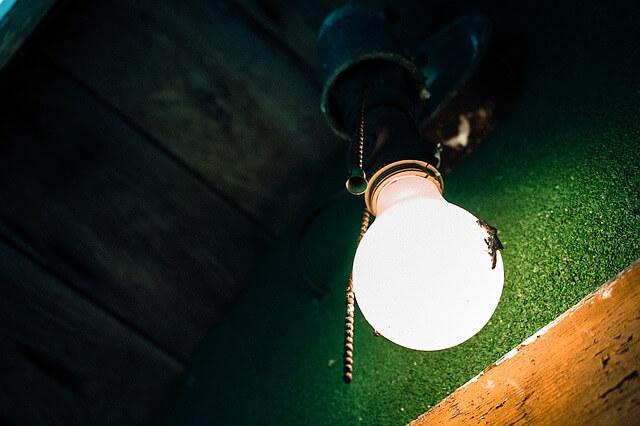
Spiders typically hang out in dark places, because they prefer to be left alone. So, does that mean they don’t like bright spaces? No, it’s a myth. Yes, the light may bother them, but won’t make them disappear. For example, if your lamp in the livingroom attracts many insects, it’s guaranteed that the very next day your lamp will be entangled with cobweb.
So if you have an infestation, leaving the lights on won’t really change the situation. The best way to reduce the frequency of spider encounters in your house is to keep it neat and tidy. Fewer places to hide means fewer places for both spiders and the things they like to eat to hang out.
13. Wall Decorations and Cracks
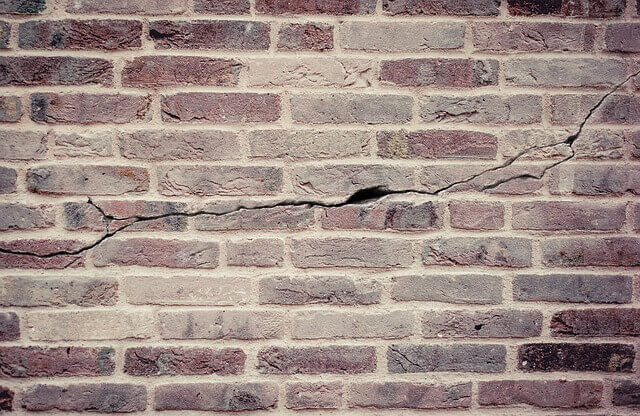
Southern house spiders are frequently associated with human habitations. They build their webs from cracks and crevices on the exterior of homes and other structure.
To prevent the creatures from hiding or web seal all openings and holes to prevent spiders from hiding there.
14. Inside your Vegetation – Your Garden is Full of Spiders
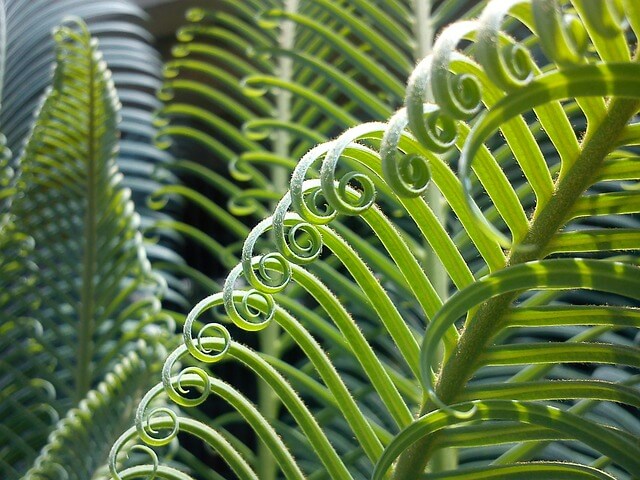
Spiders are attracted to vegetation. Many properties are surrounded by different kinds of plants, bushes, shrubs etc. This might be the reason why you have to deal with pests on a daily basis. In nature,they have a preferred environment as well.
Some of us are reluctant to kill the spiders we find in our homes, because they figure they’ll eat the critters we really don’t want around. But a new study from the vegetarian Martin Nyffeler, who studies spiders at the University of Basel in Switzerland, reveals that a spider’s diet can be far more diverse than what we were thinking so far. Many spiders, for instance, have a taste for plants.
Anyway, keep your bushes and shrubs well-trimmed, your garden nice and tidy and that will keep spiders away. At least those who don’t eat garden insects.
15. In Closets – Clean This Place to Save Your Clothes

As it has been mention above spiders like dark places. This is why they won’t deny hiding somewhere high in the closet. Keep in mind that your closet is a possible spider infested area and don’t leave it unchecked when you clean your house.Did you know that cedar can be a great deterrent for spiders. If you have access to a cedar chest or cedar hangers to use in your closet, that is a good choice as well. Using cedar blocks or shavings inside closets, cupboards or drawers can make the eight-legged critters think twice about hanging out in your closet!A study says that spiders are very active at around 7pm and 6am, so you should be careful if you’re scared of spiders.
Is your home invaded by spiders?
However, organising your closet spaces still needs to be a part of your cleaning schedule. You get rid of spiders when you get rid of their food source which is other bugs. If the infestation gets big you will have to hire a professional spider control team to clear your house.